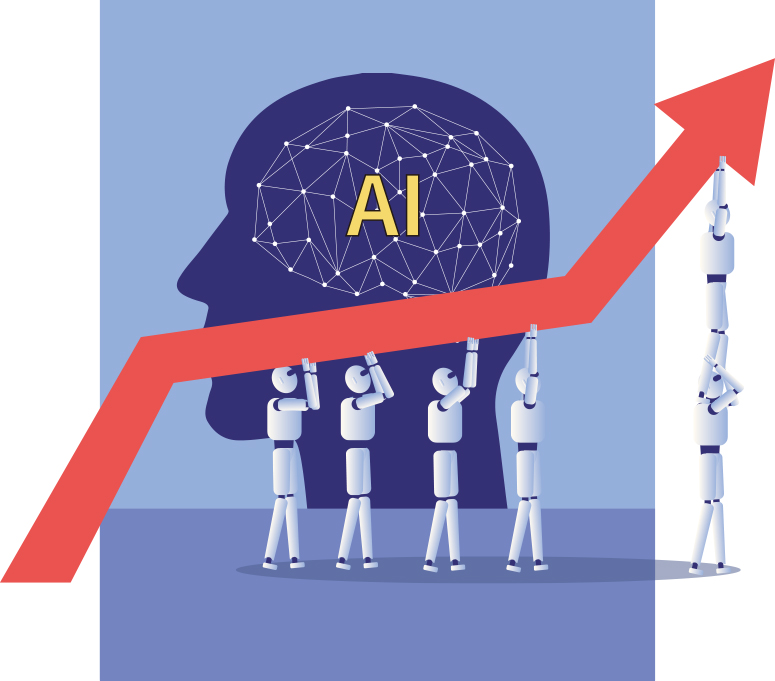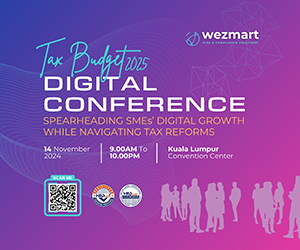By Yee Chee Mun
The Imperatives of Digitalisation
Digitalisation is no longer optional; it is fundamental for achieving future success. The World Economic Forum projects that 70% of new economic value will be derived from digitally-enabled platforms over the next decade. Automation is expected to significantly impact the workforce, displacing over 20% of jobs in advanced economies and 10% in emerging countries by 2030. Despite economic uncertainty, 72% of US CEOs still opt to prioritise investment in generative AI.
Challenges and Barriers
Embracing digitalisation and AI presents various challenges, each with its own barriers and limitations as many businesses struggle to define a clear digital strategy and vision or to understand the impact on their operations. Hiring skilled tech talent capable of supporting long-term digitalisation initiatives is also challenging. Additionally, sustaining digitalisation and AI initiatives can be prohibitively expensive and digital solutions often lack the nuanced, intuitive problem-solving mindset that humans bring, potentially leading to mistakes and increasing the risk of legal issues. Either individuals or teams can be slow or resistant in adapting AI-driven changes since change has always been uneasy and uncomfortable. Nevertheless, the ultimate aim should be to balance these high risks with effective management to harness opportunities for growth.
What Do Digitalisation and AI Mean for Professionals?

Integrating professionals with digitalisation and AI not only simplifies tasks but also paves the way for future success through higher productivity, greater efficiency, increased transparency, and enhanced trust with partners and customers. This synergistic approach fosters innovation and positions businesses for sustained growth.
Facing the New Work Paradigm
Professional organisations might face challenges in upgrading their existing practices to incorporate a more digital approach, often encountering resistance from employees who fear job displacement. If not handled well, adapting to new practices can be uncomfortable and error-prone, discouraging working morale. Data privacy and security concerns need addressing, and the need for continuous upskilling to handle advanced digital tools and techniques is both costly and uncertain. Furthermore, the high costs involved in digitalisation affect business viability and necessitate a reassessment of resource allocation.
Digitised Corporate Governance
A good digital strategy for professional sectors incorporates the elements of Process, People, and Performance into a cohesive framework, to enhance the quality of their internal governance and ensure their practices align with legal and ethical standards. On the other hand, performance optimisation is crucial for businesses to achieve quick and effective market entry, as it involves reviews and the refinement of processes for the Board, members, committees, and meetings. At the core of digitised corporate governance lies the ability to empower company boards with the tools necessary to make informed and strategic decisions.
Balancing Customer Experience
In the realm of customer experience, a seamless digital experience should not exclude the human touch; rather, it should complement it. Combining digital convenience with the empathy and personalisation of human interaction can significantly enhance customer satisfaction and loyalty.
Conclusion
Digitalisation Made Simple: Begin Small, Impact Big
How should professional organisations embark on embracing digital? Start your digitalisation journey with small, manageable steps. Focus on the gradual integration of digital tools and AI. This approach ensures smoother transitions, reduces resistance, and builds a stronger foundation for future advancements.
“The greatest danger for most of us is not that our aim is too high and we miss it, but that it is too low and we reach it.”
– Michelangelo
It is also critical to set challenging goals. This quote by Michelangelo emphasises that the real risk lies in setting goals that don’t drive us to our full potential. Whether our aim is high or low, the fundamental aspect is having the courage to embrace change. It is through daring to change and challenging ourselves that we achieve true growth and success.
Yee Chee Mun is the Chief Executive Officer of Wezmart Group.








